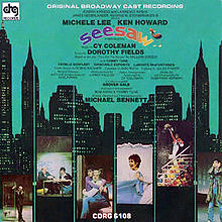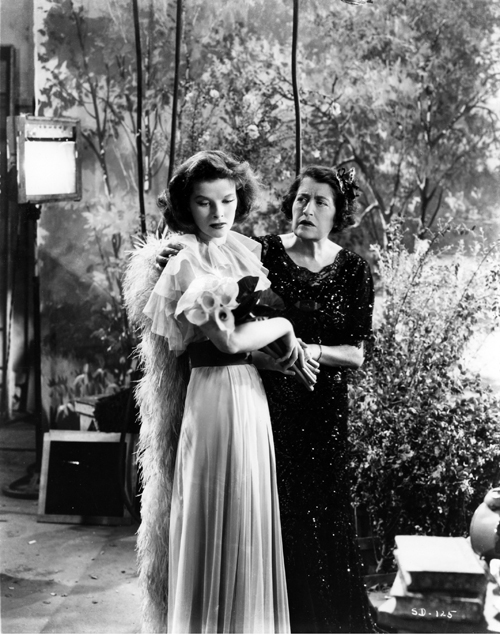Theater: What We Can Do When We Work Together
By Wendy Caster
arttimesjournal November 14, 2018
 Cast album of Seesaw |
I just voted, and I’m a nervous wreck. The sad truth is that no matter who wins, it’s not going to be pretty. We seem to have lost the ability as a country to work together toward a common goal, if indeed we ever had it.
And that’s one of the many reasons I adore theatre. It’s the most collaborative of the arts (more so than film, where the director and editor can significantly change performances without the actors’ input). Theatre shows us, every performance, what can be accomplished when we work together.
The first time I remember getting teary-eyed over a joyous musical number was during “It’s Not Where You Start” in the musical Seesaw in the 1970s. It’s the silliest of musical numbers, deliberately silly, fully committed to its silly-osity. I had tears in my eyes because it was glorious and energetic and beautiful. But I also cried because I realized the amount of work and cooperation it took to make the number succeed, and I loved the people on stage.
Of course it’s not just the dancers who contribute so much. Also involved: the choreographer, the director, the composer, the lyricist, the costume designer and the people who make the costumes, the people who wash and iron the costumes, the set designer and the people who build the sets, the lighting designer and the people who hang the lights, and so on. The audience contributes too.
 Katharine Hepburn and Constance Collier in Stage Door |
Catherine, a silly-but-wise old woman of the theatre, explains it in the movie Stage Door. The character Kaye (Andrea Leeds) has just committed suicide, largely because she didn’t get the lead part in a play she was desperate to do. Terry (Katharine Hepburn), who did get the part, feels horribly responsible and doesn’t want to go on. Catherine (Constance Collier) tells her,
You can't think only of yourself. Kaye is dead -- you had nothing to do with that. But there are fifty living people to whom this show may mean as much as it did to Kaye. The ushers, the property men, the old women who clean out the theatre. Each one of them has the right to demand that you give the best performance that you can. That's the tradition of the theatre.*
This speech is something of a cliché now, but it’s still true. And wonderful.
So on this day of real life being particularly real, I’ll keep my fingers crossed for the fate of our country. And I’ll use theatre to remind myself what we can do when we work together.
*As a writer myself, I think it’s important to give credit to writers, but it’s not clear who exactly is responsible for this speech. The screenplay was by Anthony Veiller, Morrie Ryskind, and Gregory La Cava (who also directed). The original play was by Edna Ferber and George S. Kaufman.
( Wendy Caster is an award-winning writer living in New York City. Her reviews appear regularly on the blog Show Showdown. Her short plays You Look Just Like Him and The Morning After were performed as part of Estrogenius festivals. Her published works include short stories, essays, and one book. )
